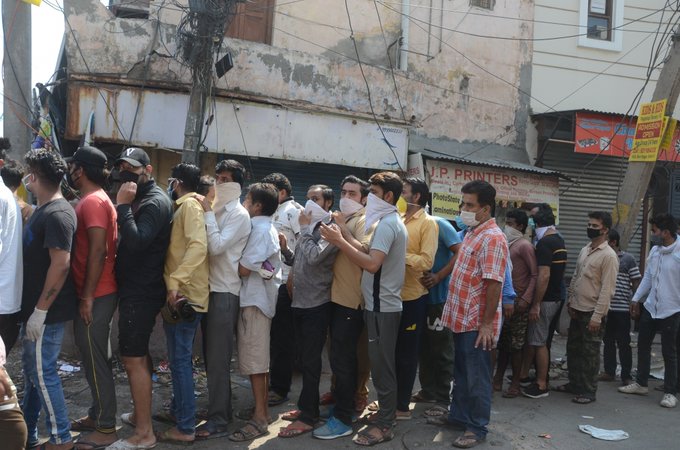New Delhi: The Supreme Court on Friday observed that the state governments should consider online sale or home delivery of liquor during the nationwide lockdown that’s in place to fight the coronavirus pandemic.
The remarks came from a bench comprising Justices Ashok Bhushan, Sanjay Kishan Kaul and B.R. Gavai during the hearing of a PIL through video conferencing. The PIL complained of indiscriminate flouting of all social distancing norms at the liquor vends after they were reopned on May 4.
The top court observed that it is not feasible to pass orders on the PIL filed under Article 32 and instead asked the state governments to consider selling liquor through other viable options, keeping in place social distancing norms.
The court said, “We will not pass any order. States should consider indirect sale or home delivery of liquor to maintain social distancing.”
Advocate Sai Deepak, representing the petitioner, submitted that the opening of liquor shops should not meddle with the lives of the common people.
The petition under Article 32 of the Constitution sought direction from the apex court to the Centre in order to declare the new Covid-19 guidelines issued by the Union of India, which permit the sale of liquors at liquor vends through direct contact sales during the lockdown period “as unconstitutional, null and void”.
The petition argued that prohibition of sale of liquor for human consumption at liquor vends through direct contact sales during the lockdown period would eventually contribute to containing the spread of Covid-19 in India, until the National Disaster Management Authority or the Centre declares India to be Covid-19 free.
Serpentine queues were reported across Delhi and many other parts of the country after the liquor vends opened in the third phase of the lockdown. At many liquor vends in Delhi-NCR, people disregarded social distancing norms while queuing up to purchase liquor.
Liquor shops had been shut down across India after the nationwide lockdown was announced on March 24 midnight. They reopened on May 4. (IANS)


COMMENTS